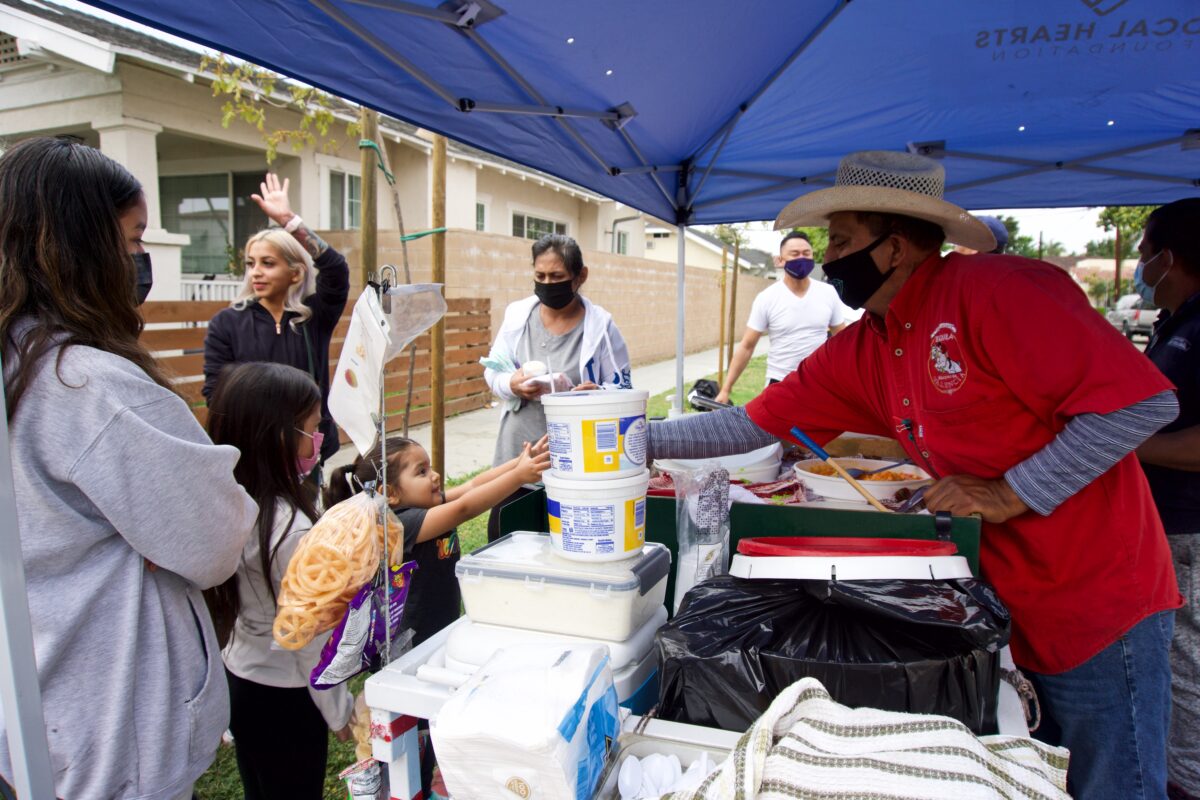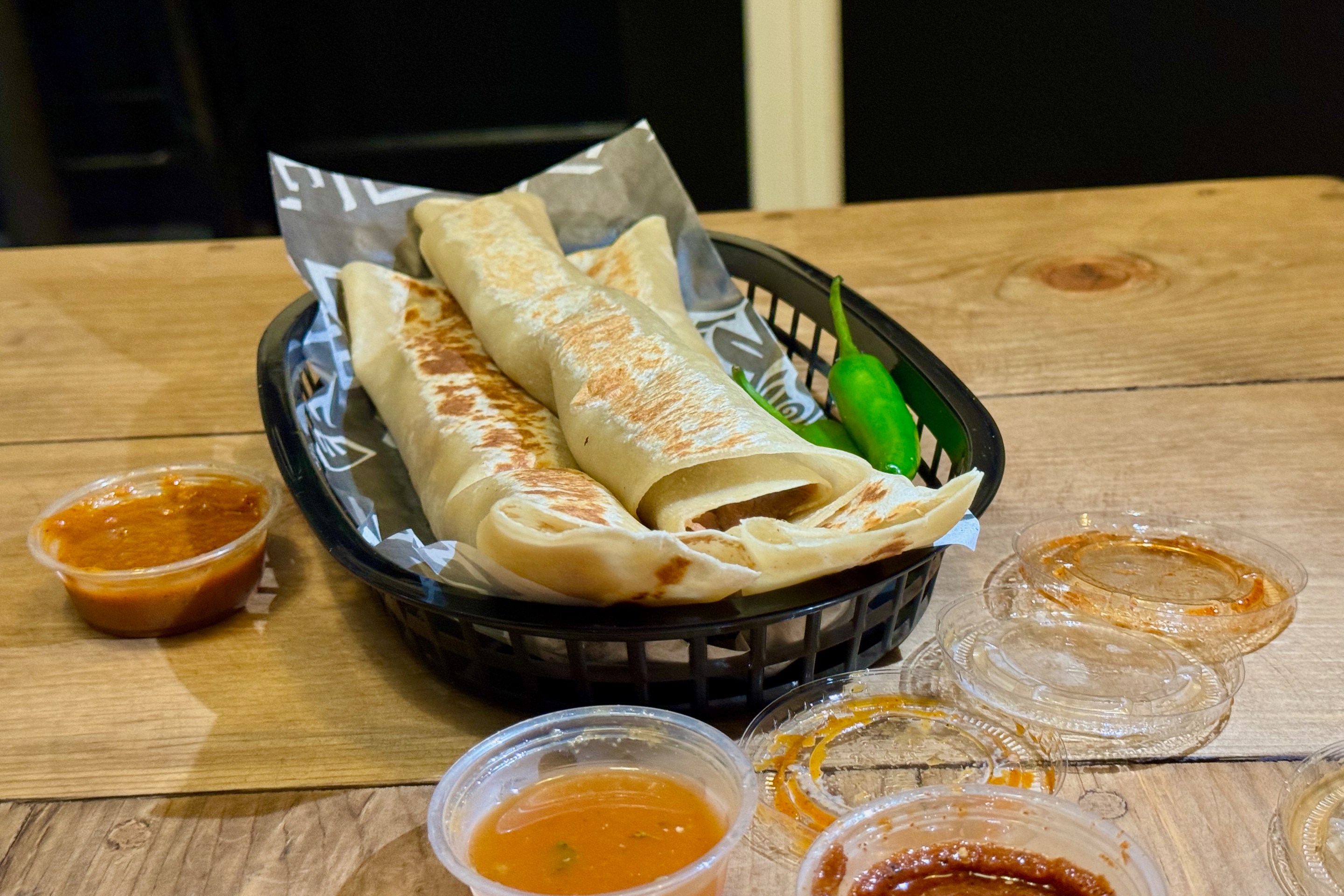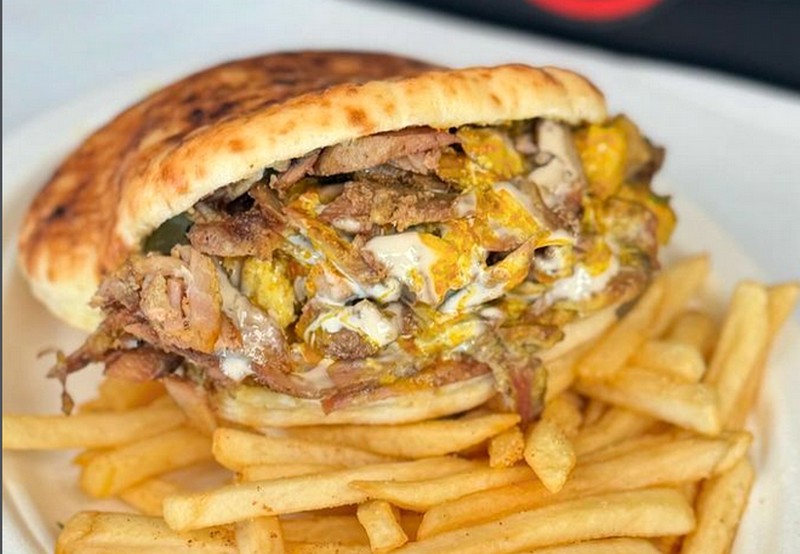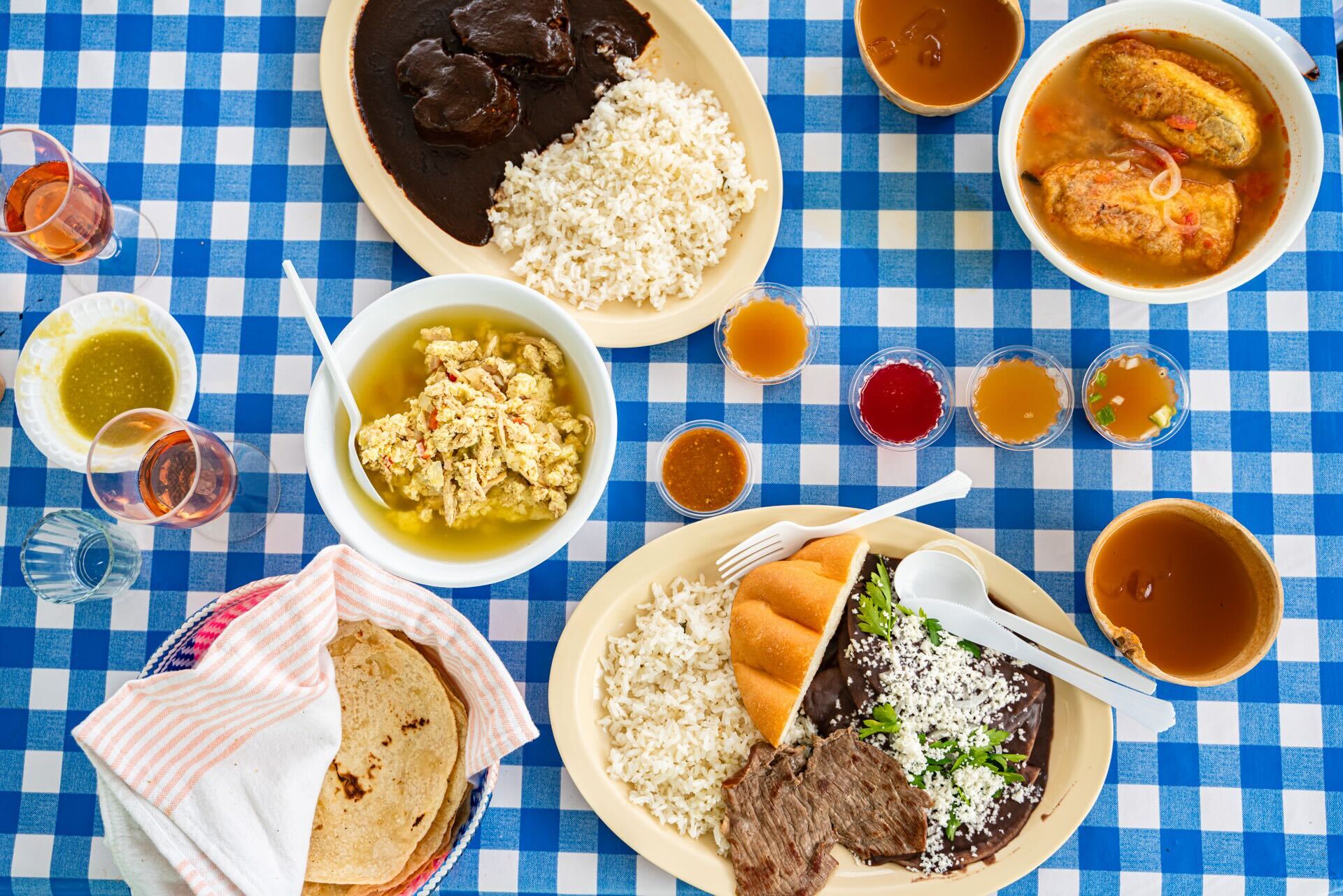This Tuesday, July 19, in the next Santa Ana City Council meeting, Johnathan Ryan Hernandez, the Councilman for Ward 5, will raise for discussion a proposed law that would classify all attacks on the Orange County city’s street vendors as hate crimes.
A born-and-bred Santa Ana local raised in the Artesia Pilar neighborhood by a family from Guadalajara, the 29-year-old community mental health worker has witnessed the recent wave of attacks on vendors across the city and beyond with recognizable anguish and frustration. With his new proposal, he seeks to provide greater protections, deterrents, and punishments against the racially motivated, targeted attacks that continue to threaten and endanger these staple businesses and hard-working neighbors, who are under constant danger in so many of our California communities.
L.A. TACO spent some time speaking with Hernandez this morning about what he’s proposing and what it could mean for our revered street vendors, both locally and across the state.
Hello Johnathan, we learned from Edin Alex Enamorado’s Instagram account that you’re proposing a law to make attacks on street vendors get charged as hate crimes in Santa Ana. Can you break down what you’re proposing and how you hope to see it passed?
JH: That is correct. I’m looking to make any and all attacks on vendors a hate crime. So we would look to penalize them as hate crimes so there are more severe charges for people who think it’s a good idea to attack street vendors. If there is majority support for this [in Tuesday’s meeting], it will move into the stage where we’re able to draft this ordinance. And able to work with community members and vendors and get their input, and in 30 days, I’ll bring it back to a different council meeting and hope to get it approved.
And at that point, it would just apply locally in Santa Ana? Or will you then be able to bring it to the state legislature as well?
JH: It applies locally, but then I would take this law, I would share it with other cities. And then I would share I with Congress.
Do you have an estimate as to how many reported attacks there have been on street vendors in Santa Ana in the past year?
JH: That’s a great question. We’re fortunate that it hasn’t been large numbers. But I’ve seen enough to know that it’s a problem and I need to be proactive in protecting our vendors.
It's obviously upsetting to so many people locally, statewide, and nationally to see these attacks towards people and institutions that we love. What was the spark that started you on the path of suggesting this law?
JH: I just know these are not crimes happening simply due to the fact that [assailants] think this is an opportunity to come up, you know, and rob someone. I look at what’s happening and I think that these are crimes that are hate crimes.
What is it about the attacks on vendors that legally fit the criteria for such a hate crime designation?
JH: Because you don’t see White street vendors or Black street vendors getting beat up on social media. You don’t see this happening in Hollywood, on the Strip. You see it happening in Latino neighborhoods where there’s a large percentage of undocumented people, and it’s predominantly Spanish speakers. So, that’s the challenge.
Street vending is part of the culture. You go to Mexico, it’s a big part of our thread. You go to Africa, you’re going to see street vendors. You go to Colombia, Costa Rica, you’re going to see street vendors. It’s so normalized. But in our country, as it comes to issues relating to immigrants, there’s always an attack on people. And unfortunately, in this case, we’ve seen that street vendors have been facing the brunt of these attacks. Latino street vendors. Whether it be Central American, Mexican-American, Indigenous, it’s all the same to folks that have been attacking us.
Would the attacks have to involve some kind of verbally expressed racism? Or would it be applied to any attacks as a blanket measure?
JH: Anybody who attacks. And part of the reason why that’s so important: a lot of these crimes that have been happening, we know they’re hate crimes. But police are not reporting them as such. What I’ve found is that, unfortunately, because they’re not properly reporting these crimes, the victims aren’t willing oftentimes to participate. They’re not protected by legislation that allows them to gain access to having the opportunity of citizenship for being the victim of a hate crime. So, it’s also creating the infrastructure to say, ‘hey look, nobody should get attacked, but if we’re struggling to trust these agencies, what we’ve got to do is instill trust. If they’re not going to call it a hate crime, let’s do it ourselves.’”
What kind of changes do you anticipate seeing if your proposal is passed into law?
JH: I think it will raise the bar on how people perceive street vendors and treat them. I think it addresses the elephant in the room. That people don’t respect them. And it reemphasizes that, in Santa Ana, street vendors are part of the lived experience here. For some of us, a street vendor meant this is lunch or your first meal of the day walking home from school. For a lot of us, you know these street vendors for 20-plus years, they’ve been selling in the same area that you grew up. They’re part of the DNA of the community and I think it’s going to make a lot of people happy.
Do you foresee the proposal enjoying support in Tuesday’s meeting?
JH: I do.
And serving as a model or precedent for other cities to adopt?
JH: Yes.
Does your proposal have a name or title at this point?
JH: That’s a great question. Not yet. I want to work with community members on that. Maybe it’s like, “Protect The Hood Street Vendors Initiative,” or something like that. I want it to be really different.
What message do you have for supporters and street vendors in regards to this law?
JH: What’s really important that I want to emphasize: when I was a kid, the street vendor I associated my life with, takes care of the community I live in, which is Artesia Pilar. To give you some insight as to how big of a role they played, the paletero that has been in my neighborhood has been selling here for 27 years. I’m 29. So this guy’s been a part of my life since I was a kid. I spoke with him yesterday, Bartolo. And he shared that nobody’s ever robbed him here, nobody’s ever attacked him.
The only thing he shared is that sometimes people who are going through tough times will ask him, ‘Can I have an ice cream?’ And he’s found that when you help out your community, people respect you and take care of you. And he felt that this law would make sure that street vendors across the city are protected and I guess our message to street vendors is that they’re not alone. And I recognize what’s happening is discrimination and racism. And I don’t want to see elected officials brush past this and that we’re in their corner.
Thanks so much, Johnathan. Also, can you tell us about your experience with MMA and self-defense in your community?
JH: Yeah, I have a lot of community experience in Santa Ana, where I work with athletes. And I started a boxing club to teach kids how to defend themselves. And I have a friend that has had to provide street vendors with bullet-proof vests at the Hood Center in Long Beach. And we shouldn’t have to get to that point. This isn’t war. You shouldn’t have to wear bullet-proof vests. So on the MMA side, I try to keep my circle of friends involved and say, hey, you know, maybe we got to walk with these street vendors sometimes.





